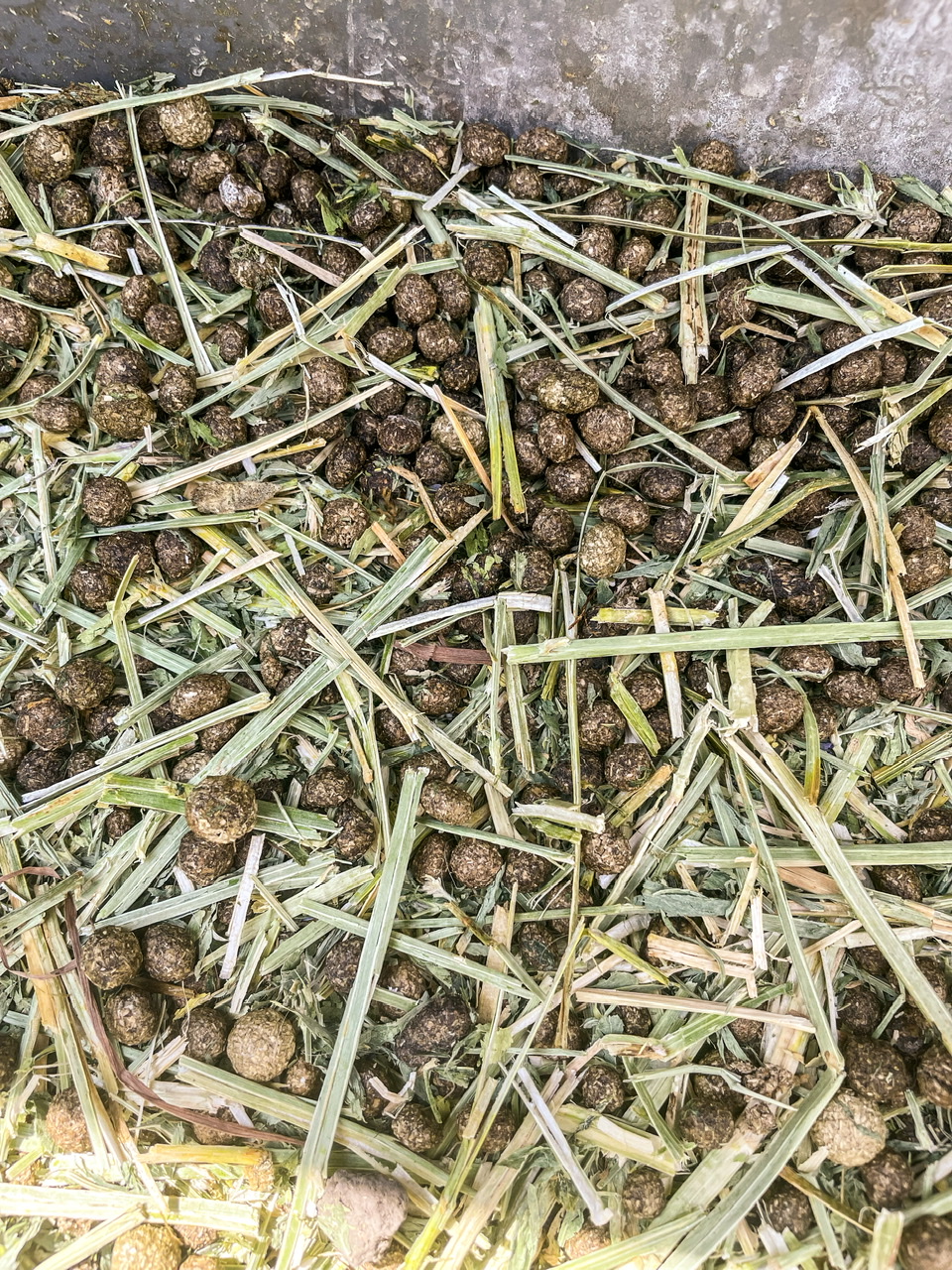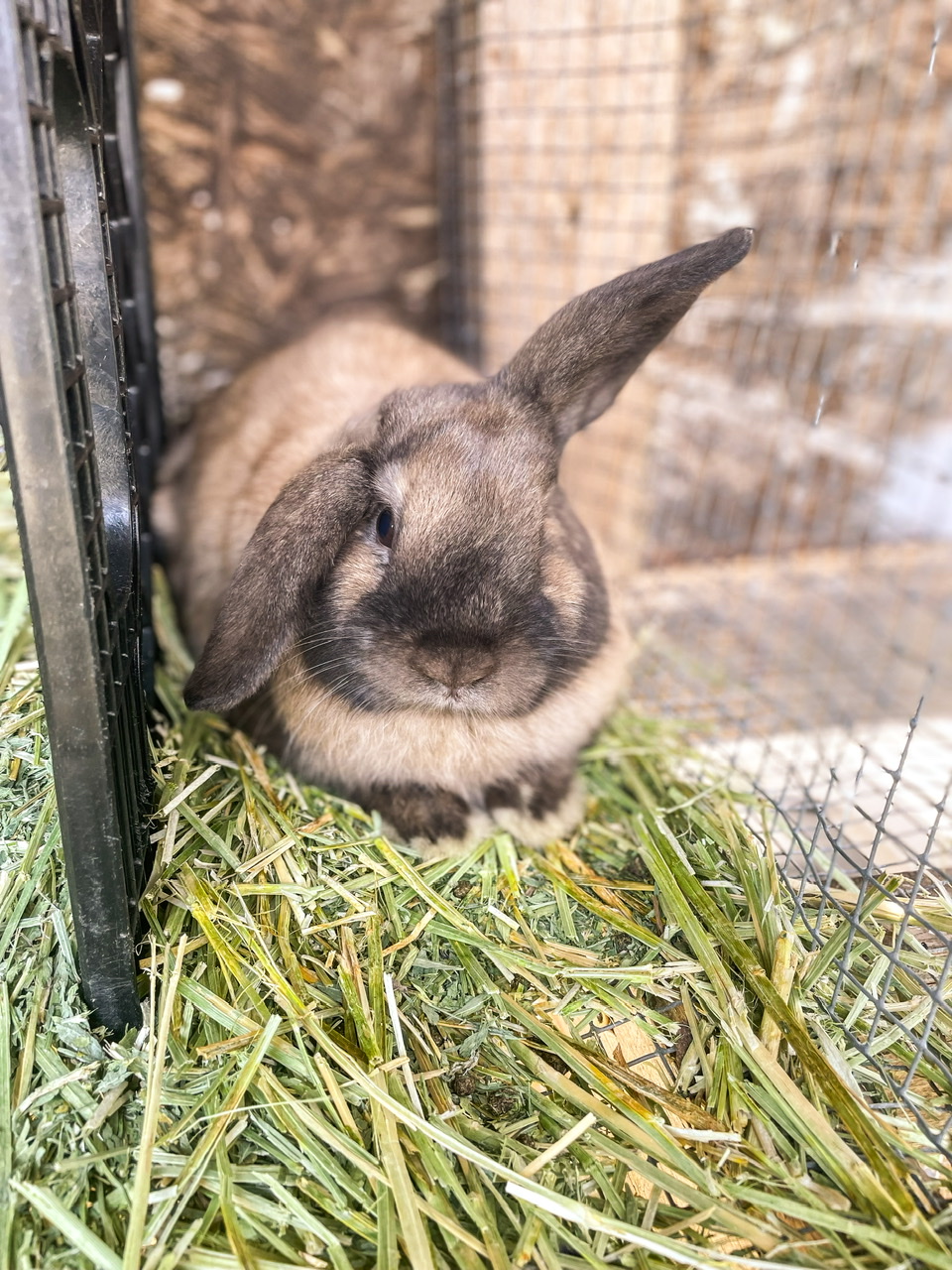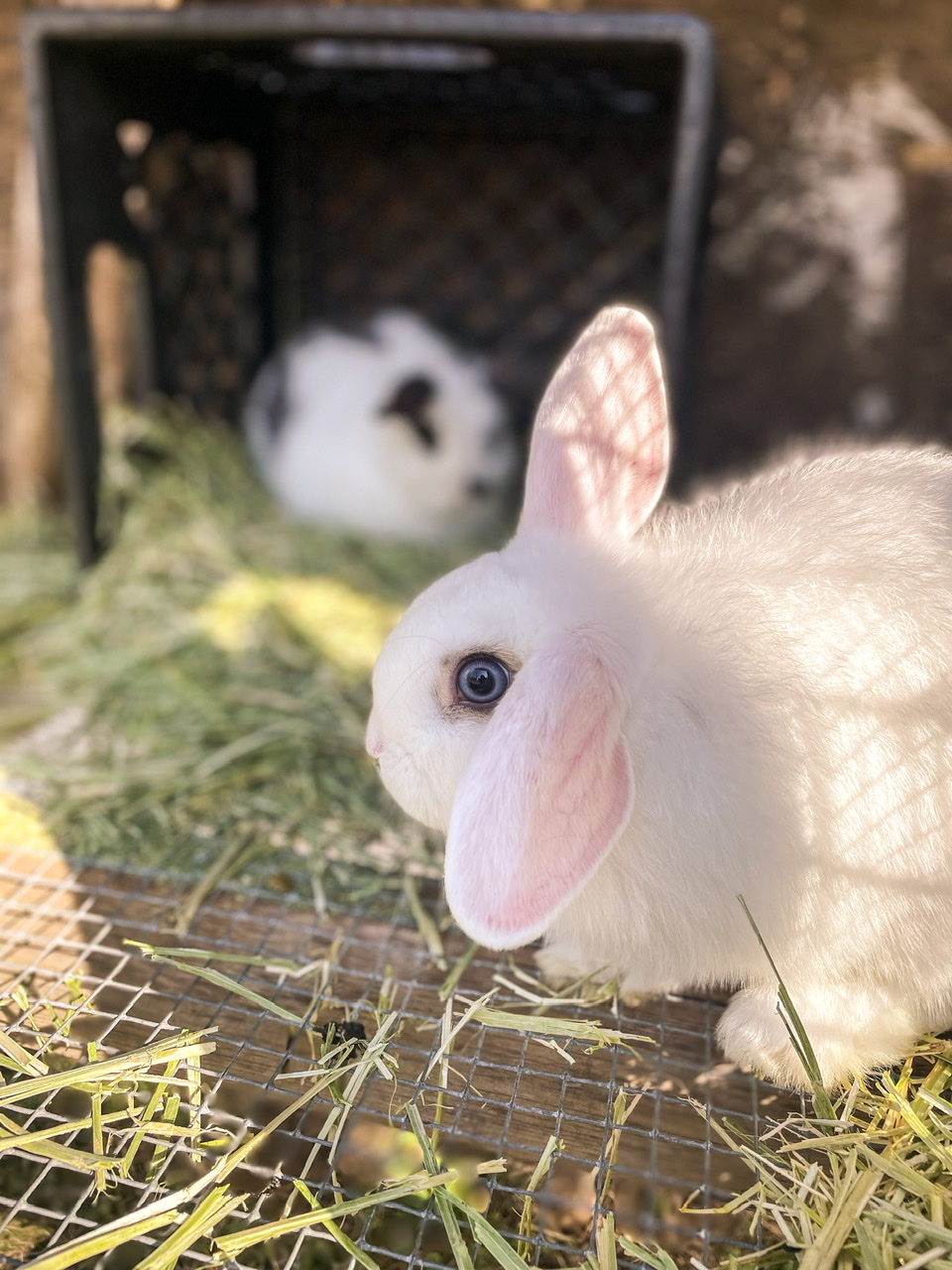Using rabbit poop as fertilizer for your garden is a great way to be more sustainable and reduce your impact on the environment. Not only is it good for the plants, but, if you already own rabbits, it’s free! Here’s everything you need to know about using rabbit poop as fertilizer, from what it is good for, how to gather it, and how to apply it.
How does using rabbit poop as fertilizer work?
Rabbit poop is high in nitrogen, phosphorus, and potassium, which are all essential nutrients for plants. It comes as a dry, dense pellet that is also relatively low in fiber, so it breaks down quickly and doesn’t need to be composted before using it on your garden. It is low in ammonia and uric acids which keeps it from burning your plants upon contact. You can apply rabbit poop directly to the soil or mix it with water to make a liquid fertilizer.
Rabbit poop or “pellets” also contains many other nutrients, such as calcium, sulfur, magnesium, and zinc. These micronutrients are also needed for healthy plant growth.
When choosing rabbit poop to use for fertilizer, it’s important to pick rabbits that are healthy and well-fed. The best type of rabbit poop to use for fertilizer is from rabbits that eat mostly hay or grass. Avoid using manure from rabbits that eat a lot of pellets, as this can be too high in nitrogen and encourage foliage growth, not necessarily fruiting. Additionally, wild rabbits often have parasites so using their poop should be avoided.
How to turn rabbit poop into fertilizer

Start by collecting the rabbit poop. You can do this by placing a litter box in your rabbit’s cage if they are trained and scooping out the droppings daily. If you are using a more traditional raised hutch made of wire, simply place a tarp under your hutch to collect rabbit waste when you need it.
Side dressing is a popular way to use rabbit pellets. Simply take a small amount and place it in the soil around your plant. The pellets quickly break down with watering to enrich your soil.
Additionally, you can also make a liquid fertilizer with rabbit poop. Once you have 4 cups of rabbit manure, mix it with an equal amount of water in a bucket. Let the mixture sit for 24 hours so the manure can break down. After 24 hours, strain the mixture to remove any large pieces of rabbit poop. Now your rabbit fertilizer is ready to use.
If you have been collecting your rabbit poop for a while, my favorite way to use it is to place it in a hole before transplanting. This puts it directly by the root so they can soak up all the nutrients!
What plants can you use rabbit poop on?
Any! Rabbit fertilizer can be used on all types of plants, including vegetables, fruits, flowers, and herbs. It’s especially good for plants that are heavy feeders, like tomatoes and roses.
I would be wary about using it by root vegetables or leafy greens, both of which can become contaminated if not properly cleaned before eating. Salmonella and Ecoli can still be spread by rabbits although the risk of transmission is low.
How often should you fertilize with rabbit poop?
You can apply rabbit fertilizer to your garden, minimum, once a month. If you’re using it on potted plants, you can apply it every two weeks. While it won’t necessarily harm your garden to use it more, rabbit pellets are still considered excrement and they can taint your vegetables if you aren’t careful about where/how you apply it.
Another drawback to applying it more often is that it tends to attract flies. A simple fix is to compost it or bury it to reduce creating an unintentional fly infestation.
What are the benefits of using rabbit poop as fertilizer for your garden?

Rabbit poop is organic, so it won’t harm the environment like some chemical or synthetic fertilizers can. It is a great way to add nutrients back into the soil, which is especially beneficial if you have poor soil quality. Using rabbit poop as fertilizer can also help to improve drainage and aeration in the soil.
We all know there is a special kind of anguish that comes with unintentionally killing new transplants by applying “hot” compost. That isn’t something you have to worry about with rabbit pellets. Due to its pH, it won’t ever kill your plants.
The one great thing about keeping rabbits (besides being dual-purpose) is that their poop doesn’t smell! While you might still have flies, there is almost no odor due to the pellets being dry.
Plus, if you own your rabbits, using their fertilizer is free. If you don’t have rabbits but are interested in using their waste as fertilizer, you can usually purchase rabbit manure from a local farm or pet store.
What are some tips for using rabbit poop as fertilizer in your garden successfully?
As previously stated, our favorite way is to put it in the ground before transplanting. You also have the option of mixing it with water and apply it with a watering can or spray bottle. For best results, apply rabbit manure early in the morning or late in the day to mature plants.
Apply it as a top dressing: Once your plants are already growing, you can apply rabbit manure as a top dressing. Simply spread the manure around the base of the plant, being careful not to get any on the leaves or fruit.
Add it to your compost pile: If you have a compost bin, you can add rabbit manure to it. This is a great way to recycle rabbit waste and create nutrient-rich compost for your garden.
Once you have a good amount of poop, mix it with water until it forms a slurry. Pour the mixture around your plants and water them in well. For best results, do this in the spring or fall.
Just be sure to wear gloves and a mask when handling rabbit manure, as it can contain harmful bacteria. Also, start with a small amount and increase it gradually as needed. Different vegetables have different needs and a surplus of nitrogen can inhibit growth in plants, such as beans.
Are there any risks associated with using rabbit poop as fertilizer in your garden?
There are a few risks to be aware of when using rabbit manure as fertilizer.
The first is that it may contain parasites or diseases that could harm your plants. If you are using fresh rabbit manure, this is more of a concern. However, if you are using aged manure (rabbit poop that has been composted for at least six months), the risk is much lower.
Another concern is that rabbit manure is high in nitrogen. This can be beneficial for your plants, but too much nitrogen can also lead to problems such as leaf burn or stunted growth.
To avoid these risks, be careful not to over-fertilize your plants, which can lead to problems even with organic fertilizers. It’s always better to err on the side of using less fertilizer, rather than more. Also, if this is a concern, make sure you are using aged rabbit manure to minimize the risk of parasites or diseases.
Using rabbit poop in the garden

If you’re looking for a more sustainable way to fertilize your garden, look no further than rabbit poop! Rabbits are easy to keep and can provide a valuable service by helping to reduce the amount of organic waste in your yard. Plus, their droppings make an excellent fertilizer for plants. So before you go out and buy chemical-based fertilizers this season, consider using rabbit manure instead – it’s good for the environment and your plants!
1


